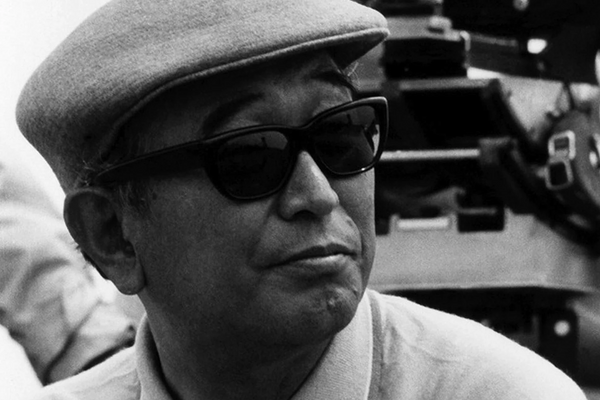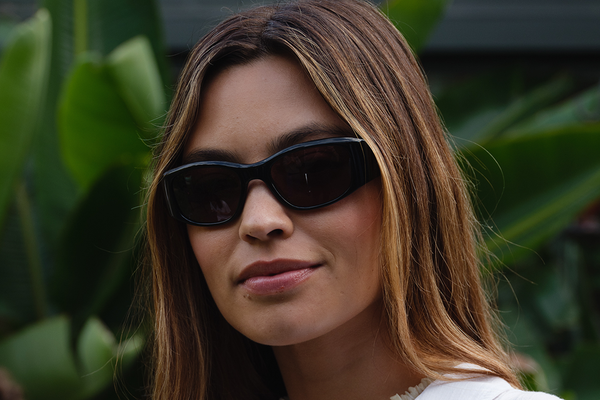Dr. Yewande Pearse is a London-born, Los Angeles-based neuroscientist and science communicator and one of the smartest, most talented and hardest working people I know. She also happens to be one of my best friends. I place a lot of value on friendships that challenge me and offer a totally different perspective. So as someone who operates 95% of the time on intuition (for better or worse), is fascinated by the unquantifiable or ‘other’ and who basically failed science in school, it has been truly enlightening to have a neuroscientist come into my world and provide reason, logic and hard evidence behind many of the matters in life I approach from my ‘feels’. But the unique thing about Dr. Yewande is that, if we’re talking about being left or right brained, she is ALL brain.


Yewande has carved out a niche for herself which combines a love of music, art, culture and holistic living with her chosen profession: creating “Pop Science”, or “Social Media Science” as I’ve heard friends call it. Bridging the gap between the worlds and making science relatable, fun, engaging and vibrant, just like Yewande herself. The power of music, plants, scent, psychedelic drugs, meditation, flirting, grief and heartbreak are just a few of the topics she has covered. By day, she can be found developing stem cell therapies to treat rare childhood brain diseases and in her spare time, writing reports for the likes of Massive and TEDMED and collaborating with the Natural History Museum, Navel, John Legend and Headspace in the YouTube series “Music on My Mind” and Dublab — LA’s independent radio station where she hosts her monthly radio show “Sound Science”. Oh, and if that isn’t enough, she wants you to know she came up with that title :)

Why neuroscience? Tell us about how you became a scientist.
Accidentally! It wasn’t a childhood dream… or maybe it was. Apparently, when I was young, I used to do these experiments outside. For example, something to do with snails and the rate at which they moved..! And I would dress up as a doctor or scientist. My mother is a Nigerian immigrant and (classic story) wanted me to do something honorable and professional, like be a doctor. I hated science in school but because I needed it to do medicine, I worked hard and actually got onto a course! Long story short, I never quite made it and ended up doing Human Biology at King’s College London. It exposed me to a completely new way of learning and expanded science for me: not just chemistry, biology and physics but the biology of aging or genetics, evolution, human anatomy... something clicked and I began thinking about things as more of a narrative. Once you realise what it is to become a human being, it can’t not be interesting. Everyone can relate. My undergrad dissertation on Synaesthesia was the first chance I had to freestyle and pursue my own research and I discovered my favourite thing about the body: the brain. Suddenly I loved it. Medicine was still the plan but wasn’t what I wanted to do. I felt like I was just getting started on this science journey though, so I did a masters in Neuroscience which really changed the game: I got deeper and deeper into it, never with a particular goal but a curiosity and desire to keep learning. And at the research stage, you’re no longer just reading stories. You’re creating the stories.
I moved to LA after my PHD: I wanted to experience science in the States and go on an adventure, being honest! Now when I look back, it makes sense that I’m a Scientist. It was just an identity I didn’t align with for a long time. All you need is some sort of entry into it and to break down the barriers. Then it’s so interesting.

Explain to us the importance of combining the two worlds: science and art?
At age 30 things changed and I decided it was time to be more authentic and a fully-integrated human! All my friends were creatives and my first boyfriend was an artist. I’m into music and art and was kind of living a double life: I had these two parts of myself that were happening separately. When I moved to LA, I began to see clearly that the two things weren’t as separate as I thought and started exploring how I could bring them together. I saw how art, music and culture can be an entry point into understanding science but how science can benefit from creativity. I started writing science stories for Massive, making it relevant and engaging. It's so tunnel-visioned and niche at the post-grad level that you forget about the science that engages you — like, what does music do to the brain? That’s how I came up with the podcast. The first topic was heartbreak: I went through a heartbreak and wanted to know why it was actually physically hurting me, what goes on in the brain during that and did other non-scientists have similar questions? It was a great outlet for me to play music that I love, ask questions about science that I was interested in and connect with a community outside of the science world. Science doesn’t mean as much if it’s not relevant to my Mum, or my best friend or boyfriend. Collaboration is so important: there are so many people from different backgrounds and brands and I wonder what they want to know and love the challenge of figuring it out.


What would you like to impact, or see change in your industry?
More emphasis on an interdisciplinary approach: science should be relevant and shared. Bring more people in. I’m talking about anthropology and ethics and more ease towards collaboration. Science connects to everything, it shouldn’t be kept isolated.
More equity. Being a BIPOC person in science... the microaggressions can be off-the-scale. Where I work, they didn't even have a diversity, equity and inclusion committee until one incident too many finally forced me to point it out. It’s the same in all industries: not just science. Statistically it’s a problem, but also the way science is done and seen can feel super archaic, colonial even. Science has caused a lot of harm and atrocities and part of that is because of the lack of inclusion. Disability justice comes into it too. Science doesn’t always take into account the social side of things: labelling and describing people according to data and statistics. There’s a disconnect in language alone, for example, talking about ‘disorders,’ etc. In the science communication space, I feel like I’ve been able to exercise a lot more power. For example, working with the Natural History Museum who were invested in better representation in their programming. All of a sudden, you have this event with a panel which is very diverse, with all these new perspectives. The audience comes to the museum and hears and learns from these voices you’ve played a role in selecting. It’s so simple and important and something I was able to directly influence very easily: my identity means I think about that stuff.


If there’s more representation where the decisions are made, it will affect what grants you write, what funding there is, the research questions, what your lab looks like, who’s at the table. There’s a powerful knock-on effect.
And the third one: I just wish there was more time for creativity! Rather than just learning how to use a microscope, let’s learn how to make a video so we can communicate our work!



